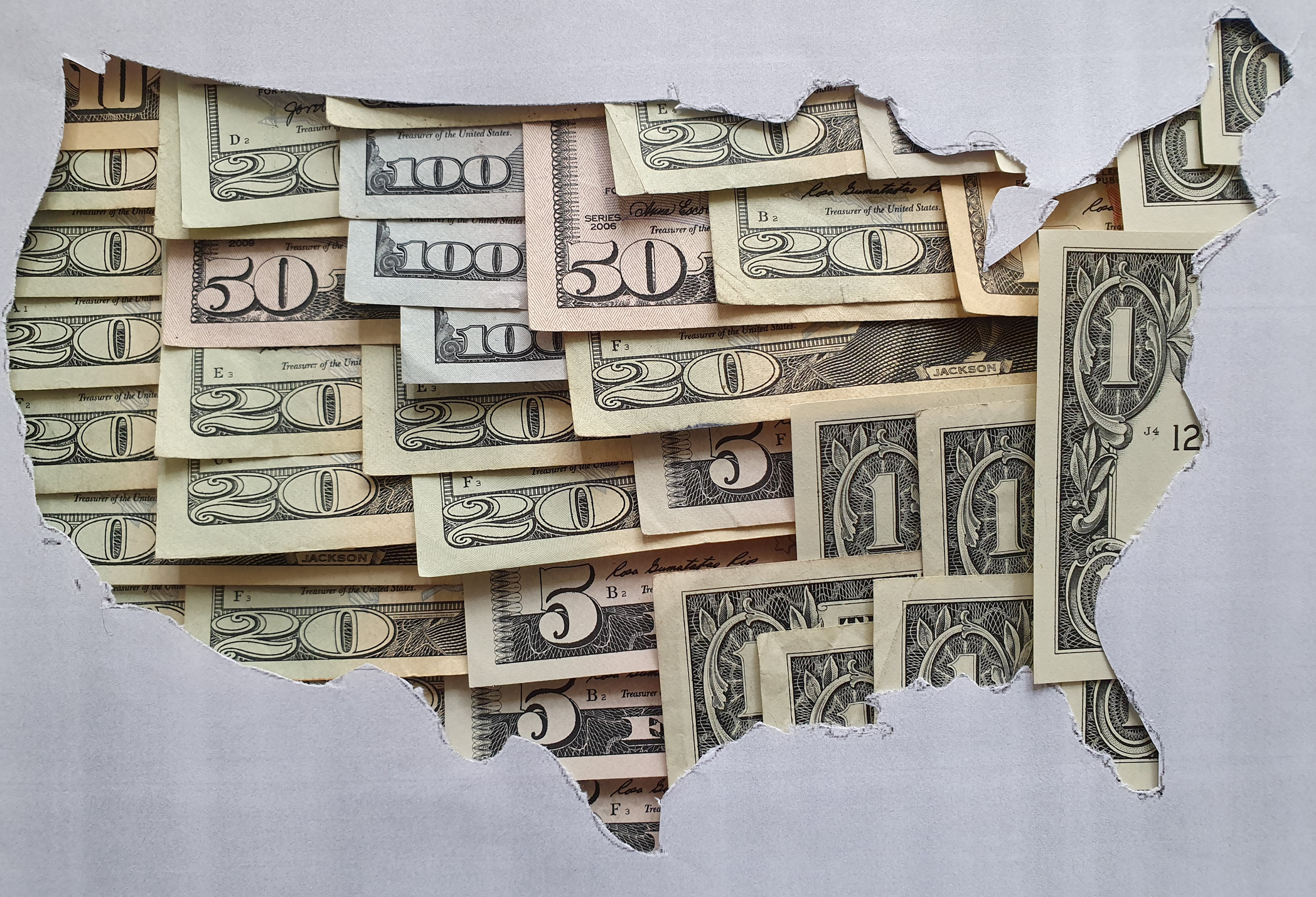States with the Highest Income Tax Rates for Retirees
You may reconsider living and retiring in one of these states due to high taxes.


Profit and prosper with the best of Kiplinger's advice on investing, taxes, retirement, personal finance and much more. Delivered daily. Enter your email in the box and click Sign Me Up.
You are now subscribed
Your newsletter sign-up was successful
Want to add more newsletters?

Delivered daily
Kiplinger Today
Profit and prosper with the best of Kiplinger's advice on investing, taxes, retirement, personal finance and much more delivered daily. Smart money moves start here.

Sent five days a week
Kiplinger A Step Ahead
Get practical help to make better financial decisions in your everyday life, from spending to savings on top deals.

Delivered daily
Kiplinger Closing Bell
Get today's biggest financial and investing headlines delivered to your inbox every day the U.S. stock market is open.

Sent twice a week
Kiplinger Adviser Intel
Financial pros across the country share best practices and fresh tactics to preserve and grow your wealth.

Delivered weekly
Kiplinger Tax Tips
Trim your federal and state tax bills with practical tax-planning and tax-cutting strategies.

Sent twice a week
Kiplinger Retirement Tips
Your twice-a-week guide to planning and enjoying a financially secure and richly rewarding retirement

Sent bimonthly.
Kiplinger Adviser Angle
Insights for advisers, wealth managers and other financial professionals.

Sent twice a week
Kiplinger Investing Weekly
Your twice-a-week roundup of promising stocks, funds, companies and industries you should consider, ones you should avoid, and why.

Sent weekly for six weeks
Kiplinger Invest for Retirement
Your step-by-step six-part series on how to invest for retirement, from devising a successful strategy to exactly which investments to choose.
You’ve probably already thought about where you want to retire. Destinations like Florida may be popular for retirement due to tax reasons, but what places might you want to avoid because of higher tax rates?
Eight states, plus Washington, D.C., have the highest income tax rates in the country, making them perhaps less tax-favorable for retirement. However, some states on the list may exclude certain retiree income from tax, which could soften the blow. And other states offer no state taxes on Social Security.
However, before we delve into states with the highest income tax rates, let’s briefly review marginal taxes to understand how much you could pay if you reside in a high-income tax state.
From just $107.88 $24.99 for Kiplinger Personal Finance
Become a smarter, better informed investor. Subscribe from just $107.88 $24.99, plus get up to 4 Special Issues

Sign up for Kiplinger’s Free Newsletters
Profit and prosper with the best of expert advice on investing, taxes, retirement, personal finance and more - straight to your e-mail.
Profit and prosper with the best of expert advice - straight to your e-mail.
What is a state marginal tax rate?
A marginal tax rate is the amount you pay for every additional dollar of a revenue stream. This means the highest tax bracket you qualify for is only paid on part of your income. States have different tax rates and tax brackets.
For example, say you have $10,000 in income. If your state has an income tax rate of 5% on the first $5,000 and 10% on income from $5,001 to $10,000, you could expect to pay:
- $5,000 x 5% = $250, plus
- ($10,000 - $5,001) x 10% = $500.
In total, you would owe about $750 in taxes. This is good to remember as we list the states with high-income tax rates, since only part — not all — of your income could be taxed at the highest rate.
States with the highest income taxes
Some states with no income tax may have higher taxes in other areas, like capital gains and property tax, or have “death taxes.” For this reason, you may want to consult with a tax professional before moving to a lower-income tax rate state.
Kiplinger used data from the Tax Foundation to identify the eight states (plus Washington, D.C.) with the highest income tax rates in 2025. Here they are.
Note: Federal tax rates apply no matter where you live in the U.S.
Vermont

Vermont has the eighth highest income tax in the country.
Vermont income tax rate
Vermont ranks eighth among states with the highest income tax rates, at 8.75% for earners making more than $242,000 (single) and $294,600 (married filing jointly). The lowest tax rate in Vermont is 3.35%.
Below are some fast facts about Vermont’s retirement income taxes:
- 401(k) and IRA distributions are taxable.
- Vermont is one of the few states that tax Social Security benefits.
- Public and private pensions are generally taxed.
Vermont has a Social Security exemption for qualified residents, but your adjusted gross income (AGI) must be $65,000 or less (married filing jointly). The Green Mountain State also has a deduction of up to $10,000 on military retirement pay and another deduction of up to $10,000 for other types of retirement income. However, income limits apply.
Because of these exemptions, and ranking the “lowest” of the high-income tax rates, Vermont may be one of the more optimal states on this list to retire.
Massachusetts

Retirement in Massachusetts may be expensive for your income taxes.
Is Massachusetts a high-income tax state?
The top tax rate in Massachusetts is 9%, making The Bay State the seventh highest in state income taxes. However, the tax rate only applies to taxpayers making more than $1,083,150, a higher threshold than other states on this list.
Most other taxpayers in the state pay a flat income tax rate of 5%.
Here are a few fast facts about retirement income taxes in Massachusetts:
- 401(k) and IRA distributions are taxed.
- Social Security benefits are not taxable.
- Private pensions are taxable, though government and public pension plans may be tax-exempt.
So, if you aren’t a millionaire and can afford property taxes in one of the most expensive states for homeowners, you could still consider a move to Massachusetts.
Minnesota

Minnesota may not be a tax-friendly state for retirees due to high income taxes.
Minnesota high income tax rate
Minnesota comes sixth on our list of states with the highest income taxes. The top tax rate in The Gopher State is 9.85% for single filers making more than $198,630 ($330,410 for married filing joint couples).
The lowest tax rate is still high at 5.35%.
Here are a few fast facts about retirement income taxes in Minnesota:
- 401(k) and IRA distributions are taxable.
- Social Security benefits are taxed.
- Public and private pensions (including federal) are typically taxed, though some may qualify for a subtraction.
Minnesota’s Social Security tax exemption could exempt part or all of your benefits from state income taxes if you make under a certain amount. For example, Social Security incomes below $108,320 (married filing jointly) or $84,490 (single filers) may qualify for a state tax exemption.
So if your retirement plan mostly relies on Social Security benefits under the exemption amounts, you may be willing to accept a higher income tax rate in Minnesota.
Oregon

Oregon retirement income taxes can be quite high compared to other states.
What is the income tax rate in Oregon?
Oregon’s top tax rate of 9.9% ranks the Beaver State fifth on our list. While the actual percentage is “low” compared to other states listed here, more residents may qualify for the highest tax bracket as the income threshold is just $125,00 for single filers and $250,000 for married filing joint couples.
Additionally, the lowest tax rate in the state is 4.75%, which is relatively high.
Here are a few facts about tax on retirement income in Oregon:
- 401(k) and IRA distributions are taxable.
- Social Security benefits are not taxed.
- Public and private pensions are generally taxed, though federal pension income may be partially or entirely excluded from Oregon taxable income.
Because of the “low” income thresholds for the top tax rate, you might rethink potential retirement in Oregon.
New Jersey

Retirement taxes may be expensive on the Jersey Shore, especially for high-income earners.
Is New Jersey a high-income tax state?
New Jersey’s top income tax rate is the fourth highest in the nation. Anyone making more than one million dollars can expect to pay a 10.75% income tax rate, regardless of filing status. The remaining tax rates range from 1.4% to 8.97%.
Below are a few facts about the taxability of New Jersey retirement income:
- 401(k) and IRA distributions are partially taxable (income requirements apply).
- Social Security benefits and military pensions are exempt.
- Private and public pensions are partially taxable (income requirements apply).
Although New Jersey taxes most retirement benefits, retirees 62 and older may deduct a significant portion of their taxable income. The maximum deduction is up to $75,000 for single filers, $50,000 for married filing separately, and $100,000 for joint filers if your federal AGI is below $100,000. You may qualify for a partial exemption if you make less than $150,000.
Retirement in The Garden State may be more affordable if you qualify for the retirement income exclusion.
Washington, D.C.

Washington, D.C. has higher income taxes compared to other U.S. states.
Does Washington, D.C. have income tax?
Although technically not a state, Washington D.C. ties in rank with New Jersey for the fourth highest income tax rate at 10.75%. Like the Garden State, you’ll pay this tax if your income is over $1 million. However, the lowest rate in D.C. is much less favorable, at 4% for incomes $10,000 or less.
Here’s a quick overview of how retirement income is taxed in Washington, D.C.:
- 401(k) and IRA distributions are taxable.
- Social Security benefits are not taxed.
- Public and private pensions (including government) are taxed.
Apart from a government pension income deduction, D.C. offers few ways to save on retirement income tax. Also, The Nation’s Capital is included on the list of states with scary estate taxes, meaning your heirs might pay more in tax, too. For these reasons, D.C. may not be your top retirement choice.
New York

New York has high income taxes, especially for some types of revenue streams.
New York income tax rate
New York has the third highest income tax rate in the U.S. at 10.9% for incomes over $25 million. But that’s not all. Localities may also impose income taxes. For instance, New York City charges an additional income tax of up to 3.876%.
And even if your earnings are lower — $8,500 (single filer) or $17,150 (married filing jointly) — you’ll still have a 4% tax rate on income.
Here are a few facts about New York taxes on retirement:
- 401(k) and IRA distributions are taxable.
- Social Security benefits are not taxable.
- Federal, New York State, local, and military retirement pensions are exempt.
The Big Apple allows some taxpayers 59.5 years and older to deduct up to $20,000 of qualified retirement income, but depending on that exemption might not be enough to retire in New York under the highest tax rate.
Hawaii’s high-income tax rate

Hawaii has high retirement income taxes compared to other states in the U.S.
Hawaii’s high-income tax rate
It may come as no surprise that Hawaii has the second-highest income tax rate in the nation given its high cost of living: Groceries, housing, and utilities tend to be significantly higher than the national average.
Single filers making more than $325,000 (or $650,000 married filing jointly) can expect to reach the highest tax rate of 11%. However, that income rate drops to 1.4% for single taxpayers making less than $9,600 (or $19,200 for married couples).
Here are a few facts about Hawaii’s taxes on retirement income:
- 401(k) and IRA distributions are taxed.
- Social Security benefits are exempt.
- Military, federal, state, and local pensions are not taxable (including out-of-state government pensions). However, you must not have made contributions to the plan.
The Aloha State also charges a 10% to 20% tax on estates worth more than $5.49 million. So if you want to leave something substantial for your heirs, you might not want to live and retire in Hawaii.
California

California has the highest income tax rate in the U.S.
California: The highest income-taxed state
California has the highest income tax rate in the U.S., with a staggering 13.3% on income over $1 million for single filers, and $1,442,628 for taxpayers married filing jointly.
But you’ll likely pay more than that if you’re a millionaire. Thanks to California’s tax expansion, the 2025 top rate is increased to 14.5% due to the state eliminating its wage cap on employee payroll tax for State Disability Insurance (SDI).
But if you don’t make millions, you can pay as low as 1% on income up to $10,756 for single filers (up to $21,512 for married filing joint couples).
Here are a few other facts about retirement income taxes in California:
- 401(k) and IRA distributions are taxed.
- Social Security benefits are tax-exempt.
- Pension income is taxable.
California also exacts a 2.5% state penalty on early distributions from retirement plans, annuities, and IRAs. So, if you’re looking to save on income taxes in retirement, the state with the highest income tax rate may not be right for you.
Related Content
Profit and prosper with the best of Kiplinger's advice on investing, taxes, retirement, personal finance and much more. Delivered daily. Enter your email in the box and click Sign Me Up.

Kate is a CPA with experience in audit and technology. As a Tax Writer at Kiplinger, Kate believes that tax and finance news should meet people where they are today, across cultural, educational, and disciplinary backgrounds.
-
 Quiz: Do You Know How to Avoid the "Medigap Trap?"
Quiz: Do You Know How to Avoid the "Medigap Trap?"Quiz Test your basic knowledge of the "Medigap Trap" in our quick quiz.
-
 5 Top Tax-Efficient Mutual Funds for Smarter Investing
5 Top Tax-Efficient Mutual Funds for Smarter InvestingMutual funds are many things, but "tax-friendly" usually isn't one of them. These are the exceptions.
-
 AI Sparks Existential Crisis for Software Stocks
AI Sparks Existential Crisis for Software StocksThe Kiplinger Letter Fears that SaaS subscription software could be rendered obsolete by artificial intelligence make investors jittery.
-
 How to Open Your Kid's $1,000 Trump Account
How to Open Your Kid's $1,000 Trump AccountTax Breaks Filing income taxes in 2026? You won't want to miss Form 4547 to claim a $1,000 Trump Account for your child.
-
 In Arkansas and Illinois, Groceries Just Got Cheaper, But Not By Much
In Arkansas and Illinois, Groceries Just Got Cheaper, But Not By MuchFood Prices Arkansas and Illinois are the most recent states to repeal sales tax on groceries. Will it really help shoppers with their food bills?
-
 7 Bad Tax Habits to Kick Right Now
7 Bad Tax Habits to Kick Right NowTax Tips Ditch these seven common habits to sidestep IRS red flags for a smoother, faster 2026 income tax filing.
-
 10 Cheapest Places to Live in Colorado
10 Cheapest Places to Live in ColoradoProperty Tax Looking for a cozy cabin near the slopes? These Colorado counties combine reasonable house prices with the state's lowest property tax bills.
-
 New Gambling Tax Rule Impacts Super Bowl 2026 Bets
New Gambling Tax Rule Impacts Super Bowl 2026 BetsTaxable Income When Super Bowl LX hype fades, some fans may be surprised to learn that sports betting tax rules have shifted.
-
 Should You Do Your Own Taxes This Year or Hire a Pro?
Should You Do Your Own Taxes This Year or Hire a Pro?Taxes Doing your own taxes isn’t easy, and hiring a tax pro isn’t cheap. Here’s a guide to help you figure out whether to tackle the job on your own or hire a professional.
-
 Can I Deduct My Pet On My Taxes?
Can I Deduct My Pet On My Taxes?Tax Deductions Your cat isn't a dependent, but your guard dog might be a business expense. Here are the IRS rules for pet-related tax deductions in 2026.
-
 Don't Overpay the IRS: 6 Tax Mistakes That Could Be Raising Your Bill
Don't Overpay the IRS: 6 Tax Mistakes That Could Be Raising Your BillTax Tips Is your income tax bill bigger than expected? Here's how you should prepare for next year.